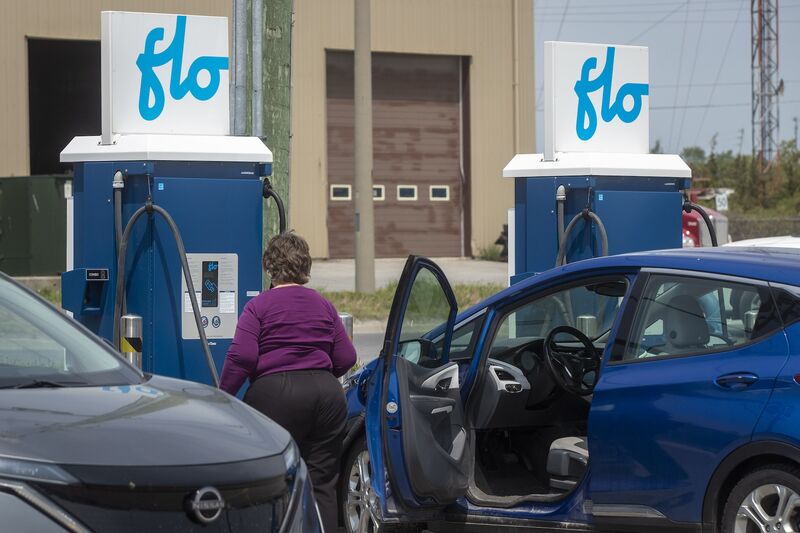Dealers Double Down: Fighting Back Against EV Sales Mandates

Table of Contents
The global automotive landscape is rapidly shifting. A compelling statistic highlights the urgency: EV sales mandates are surging worldwide, with several regions enacting ambitious targets for electric vehicle adoption by 2030 and beyond. This rapid transition is creating significant tension between governments pushing for cleaner transportation and car dealerships grappling with the profound implications of these EV sales mandates. This article examines how car dealerships are responding to and fighting back against the growing pressure of these mandates, exploring both the challenges and the innovative strategies being employed.
H2: The Growing Pressure of EV Sales Mandates:
The increasing implementation of EV sales mandates globally presents a significant challenge to traditional car dealerships. Regions like California, several European Union countries, and parts of China are leading the charge, setting ambitious targets for the percentage of new car sales that must be electric within specific timeframes. These mandates aren't just suggestions; they carry penalties for non-compliance, forcing dealerships to adapt or risk serious financial consequences.
H3: Financial Implications for Dealerships:
Adapting to the new era of EV sales requires substantial upfront investment for dealerships. The transition presents considerable financial challenges.
- Increased operational costs: Dealerships need to invest in new infrastructure, including costly charging stations capable of handling various EV models and charging speeds.
- Potential for inventory obsolescence: Maintaining a balanced inventory of both gasoline and electric vehicles requires careful forecasting and carries the risk of unsold gasoline cars becoming obsolete.
- Need for specialized technicians: Servicing EVs requires specialized training and tools, necessitating investment in employee training and new equipment. This adds a significant layer of expense compared to servicing internal combustion engine (ICE) vehicles.
H3: Challenges in Consumer Demand:
While EV sales mandates push for greater adoption, consumer demand still faces hurdles.
- Educating consumers about EVs: Many potential buyers remain hesitant due to misconceptions about range, charging times, and overall cost. Dealerships play a crucial role in addressing these concerns.
- Overcoming misconceptions: Addressing range anxiety, lack of charging infrastructure in certain areas, and the higher initial purchase price of EVs are key challenges for dealerships.
- Managing consumer expectations: Dealerships need to set realistic expectations regarding charging times, range, and the overall ownership experience to build consumer confidence.
H3: The Impact on Existing Sales Models:
The shift to EVs significantly impacts traditional dealership sales strategies and revenue streams.
- Changes in sales processes: Selling EVs requires a different approach than selling gasoline cars, often involving longer sales cycles and more detailed explanations of technology and charging infrastructure.
- The need for new service equipment: Dealerships need to invest in specialized tools and equipment for EV servicing, including high-voltage safety training for technicians.
- Potential for reduced service revenue: EVs require less frequent maintenance than ICE vehicles, potentially impacting a significant revenue stream for dealerships.
H2: Dealerships' Counter Strategies:
Faced with the pressure of EV sales mandates, dealerships are adopting various counter-strategies to survive and thrive.
H3: Lobbying and Advocacy Efforts:
Dealerships are actively engaging in lobbying and advocacy efforts to influence the implementation and scope of EV sales mandates.
- Collaboration with industry groups: Dealer associations are collaborating with other industry players to present a united front and negotiate favorable terms.
- Legal challenges: In some cases, legal challenges are being mounted against mandates deemed overly restrictive or impractical.
- Public relations campaigns: Dealerships are engaging in public relations campaigns to highlight the challenges of rapid EV adoption and advocate for more realistic timelines and support.
H3: Investing in EV Infrastructure and Training:
Proactive dealerships are investing in infrastructure and training to meet the demands of the changing market.
- Installing charging stations: Dealerships are installing fast-charging stations to attract EV buyers and provide convenient charging options.
- Investing in employee training programs: Extensive training programs are being implemented to equip sales staff and technicians with the knowledge and skills needed to handle EVs effectively.
- Partnerships with charging network providers: Collaboration with charging network providers helps dealerships offer comprehensive charging solutions to their customers.
H3: Diversification of Revenue Streams:
Dealerships are diversifying their revenue streams to mitigate risks associated with the transition to EVs.
- Expanding service offerings: Offering specialized EV services, such as battery diagnostics and repairs, can generate new revenue streams.
- Focusing on used EV sales: The used EV market is growing rapidly, providing another opportunity for dealerships to generate revenue.
- Exploring partnerships with energy companies: Partnerships with energy companies can offer opportunities for bundled energy and EV charging services.
H2: The Future of Dealership Adaptation in the EV Era:
The long-term outlook for dealerships hinges on their ability to adapt to the increasing prevalence of EVs and the related EV sales mandates.
H3: The Importance of Collaboration and Innovation:
Success in the EV era depends on collaboration and innovation.
- Data sharing: Sharing data on consumer preferences, charging infrastructure needs, and service requirements is crucial for effective planning.
- Technology partnerships: Collaboration with technology companies to develop innovative solutions for EV sales, service, and charging is essential.
- Government support for infrastructure development: Government support for charging infrastructure development is critical to fostering consumer confidence and accelerating EV adoption.
H3: The Role of Consumer Education:
Educating consumers remains critical to overcoming hesitancy toward EVs.
- Government incentives: Government incentives, such as tax credits and rebates, can help make EVs more affordable and accessible.
- Consumer awareness campaigns: Targeted campaigns can address common misconceptions and highlight the benefits of EV ownership.
- Clear and accurate information dissemination: Dealerships and government agencies must work together to provide consumers with accurate and easily accessible information about EVs.
3. Conclusion:
EV sales mandates are profoundly reshaping the automotive industry, presenting significant challenges for car dealerships. The financial implications, changes in consumer demand, and the impact on existing sales models require dealerships to proactively adapt. However, through strategic lobbying, investment in EV infrastructure and training, and diversification of revenue streams, dealerships are finding ways to navigate these changes. The future success of dealerships will depend on collaboration between manufacturers, dealerships, governments, and consumers. Understanding the implications of EV sales mandates is crucial for both dealerships and consumers. Stay informed and engage in the conversation to shape the future of EV sales, considering the broader impact of EV mandate impact and EV sales regulations on the automotive landscape.

Featured Posts
-
 Analyzing The Economics Top 5 Takeaways From The English Leaders Debate
Apr 23, 2025
Analyzing The Economics Top 5 Takeaways From The English Leaders Debate
Apr 23, 2025 -
 5 Key Economic Points From The English Language Leaders Debate
Apr 23, 2025
5 Key Economic Points From The English Language Leaders Debate
Apr 23, 2025 -
 Yankees Winning Strategy On Full Display In Opening Day Victory
Apr 23, 2025
Yankees Winning Strategy On Full Display In Opening Day Victory
Apr 23, 2025 -
 Jeff Bezos Blue Origin A Bigger Flop Than Katy Perrys Super Bowl
Apr 23, 2025
Jeff Bezos Blue Origin A Bigger Flop Than Katy Perrys Super Bowl
Apr 23, 2025 -
 Brewers Defeat Cubs 9 7 Strong Winds Impact Game
Apr 23, 2025
Brewers Defeat Cubs 9 7 Strong Winds Impact Game
Apr 23, 2025
Latest Posts
-
 Netflix Marriage And Comedy Bert Kreischers Personal Journey
May 10, 2025
Netflix Marriage And Comedy Bert Kreischers Personal Journey
May 10, 2025 -
 Dealing With Risque Comedy Bert Kreischer And His Wifes Experience
May 10, 2025
Dealing With Risque Comedy Bert Kreischer And His Wifes Experience
May 10, 2025 -
 Exploring Bert Kreischers Netflix Content And His Wifes Perspective
May 10, 2025
Exploring Bert Kreischers Netflix Content And His Wifes Perspective
May 10, 2025 -
 Bert Kreischers Netflix Stand Up A Look At His Marriage And Material
May 10, 2025
Bert Kreischers Netflix Stand Up A Look At His Marriage And Material
May 10, 2025 -
 How Bert Kreischers Wife Feels About His Netflix Sex Jokes
May 10, 2025
How Bert Kreischers Wife Feels About His Netflix Sex Jokes
May 10, 2025
